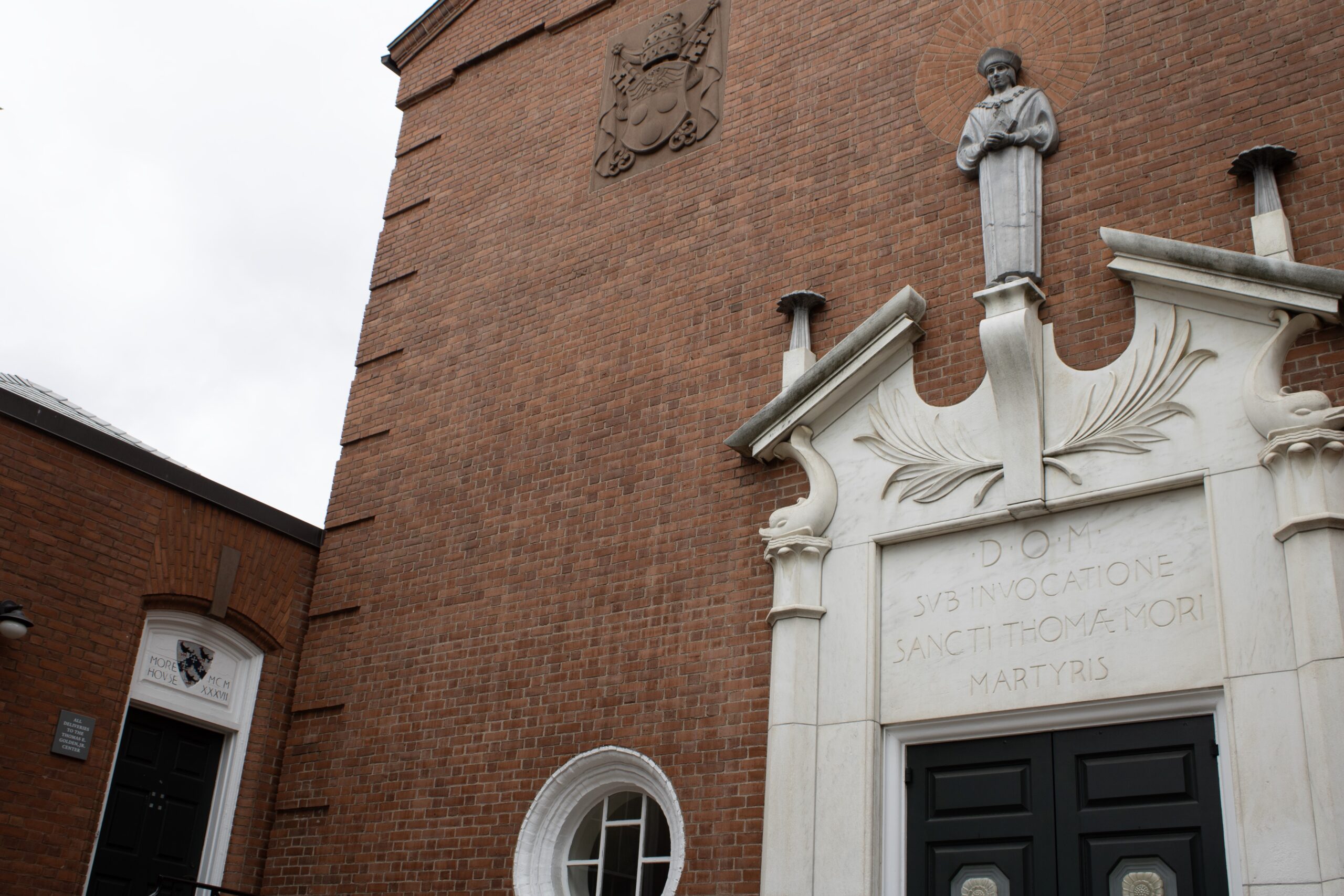Catholic students, religious studies professors reflect on Pope Francis’ recent message to voters in America
After Pope Francis' recent message to Catholic voters in America to vote for the “lesser of two evils,” Catholic Yalies remain divided on the extent the church should play in politics.

Rachel Mak, Contributing Photographer
The debate about what role the church should play in politics has resurfaced this election season.
In response to a journalist who asked what advice he would give to an American voter in the upcoming presidential election, Pope Francis replied that “Both [candidates] are against life: the one that throws out migrants and the one that kills children.” His remarks reflect a larger divide among American Catholic voters on which party to vote for, and have sparked dialogue about the extent the church, and more specifically, the papacy should weigh in on politics.
The News spoke with two religious studies professors and three Catholic students about the extent in which the church should play a role in politics.
Carlos Eire, who is teaching a course this semester titled “The Catholic Intellectual Tradition,” explained that part of the Pope’s job is to remind Catholics of their moral duties. Yet he called this statement by the Pope “one of his vaguest to date.”
“Local bishops in the U.S. have been making similar statements about elections since the 19th century,” Eire wrote to the News. “Given the long and dark history of American anti-Catholicism — which is still very much alive, even if less virulent than in the past — the Catholic Church in the U.S. still feels uneasy about backing specific candidates.”
Morgan Vannell ’27, said he sees no reason why the church and politics should be kept separate. Moral prudence is central to the Catholic tradition, he said, and the church should both doctrinally teach moral truths as well as advocate for sensible implementations of them into policy. When he approaches politics, he does so “as a Christian,” he said.
However, Owen Hannon ’27, another Catholic student, said that he was disappointed in the Pope’s statement, calling his rhetoric “defeatist.”
“It feels fundamentally anti-Christian for the Pope to compel voters to ever choose ‘evil,’ even if it is the lesser of two. I don’t think the Pope should dwell in the realm of realpolitik. Religious institutions should sit solidly in the world of values and idealism,” wrote Hannon.
Stephen McNulty ’25, a religious studies major who helps lead the LGBTQ ministry at Saint Thomas More, also does not think the Pope should explicitly endorse any candidate.
He believes the church should focus on morals and issues instead of pragmatics and candidates. McNulty said that his opinions are his own and are not representative of the entire Catholic community at Yale.
“I think the church’s job is as a witness, not as a campaign surrogate,” he said.
Philip Gorski, a professor of sociology who studies religion and politics, described the Pope’s statement as an encouragement for Catholic voters to weigh the moral implications of their vote.
“I don’t think he was telling individual Catholics how to vote. In a way, he was doing the very opposite,” Gorski wrote.
McNulty also thinks that framing the election as a lesser of two evils is an incomplete depiction when, in his opinion, one evil is worse than the other.
This November, McNulty will be voting for Harris. He specifically cites the harmful rhetoric vice presidential candidate JD Vance LAW ’13, a Catholic himself, has recently used against Haitian migrants in Springfield, Ohio. He notes it is especially despicable for a Catholic candidate to use such rhetoric against immigrant communities, which are themselves disproportionately Catholic.
“Christianity is a prophetic witness to a world beyond scapegoats, and that’s the ultimate political project of Christianity,” McNulty said. “That’s neither gonna be a left wing world nor a right wing world, but it’s gonna be a world radically different from our own.”
Saint Thomas More Catholic Center & Chapel is located at 268 Park St.







